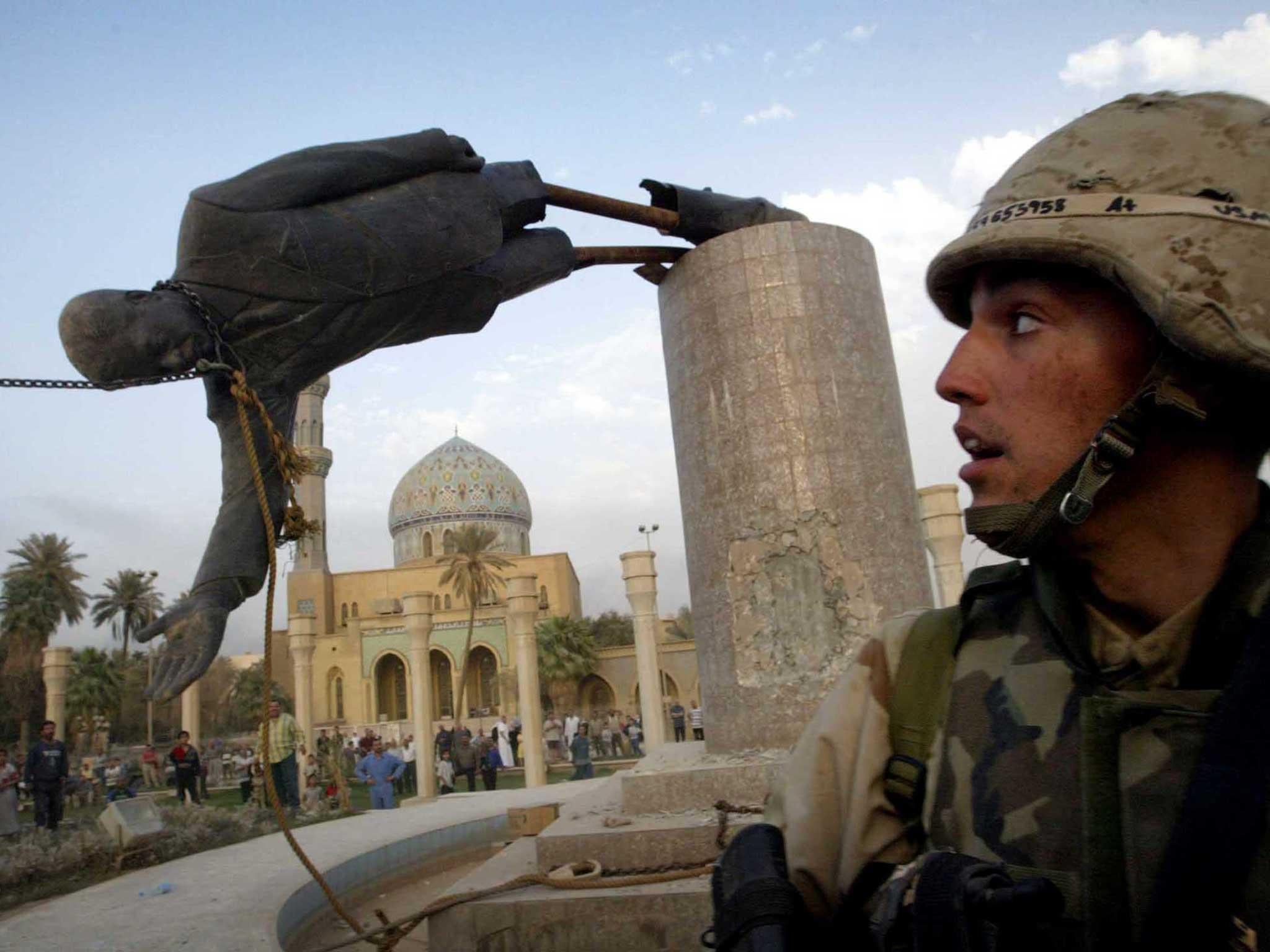The media failed us during the Iraq War and now it faces the consequences
Utterly dependent on Downing Street and Britain’s intelligence chiefs for information it could not verify, the media meekly fell into line with Government propagandists

So much of the current public distrust in the media and its incestuous relationship with the political establishment can be traced back to its failures in covering the Iraq war.
I remember picking up the London Evening Standard on 24 September 2002, and being gripped by the raw power of its splash: “45 minutes from attack”. Hours earlier in Parliament, Tony Blair had handed down his flawed tablet of stone, with its false claims of Saddam Hussein’s weaponry, and the media machine whirred into action, propelled by Alastair Campbell’s spin team.
The following morning The Sun told its readers that it was they who were Saddam’s target: “Brits 45 mins from doom”. The initial reporting showed how a supposedly free and fearless press was powerless, vulnerable and gullible in a moment of national crisis. Utterly dependent on Downing Street and Britain’s intelligence chiefs for information it could not verify, it meekly fell into line with Government propagandists. Some papers embraced the role.

There were six months before invasion, and sections of the media broke ranks. The Independent, under the leadership of Simon Kelner, made an editorial decision to emphatically oppose the case for war, reflecting the concerns of the mass protesters who took to London’s streets on 15 February 2003. Kelner’s friend Piers Morgan took a similar stance at the Daily Mirror.
But in an era when internet-based media was in relative infancy, No 10 felt able to corral opinion formers.
The pressure on the UK media should not be under-estimated. It seems extraordinary now that papers could have campaigned for the bloody mess that Iraq became but, at the outset, the operation was depicted by Government officials as a humanitarian one, liberating the Iraqi people from oppression. Even liberal The Observer – to the horror of many colleagues on sister paper The Guardian – backed the case for war. In the US, the venerable New York Times was embarrassed as it swallowed fabricated evidence of Saddam’s weapons of mass destruction, cynically supplied by members of the Iraqi opposition and pro-war lobbyists.
After the invasion began in March 2003, right-wing media sought to whip the BBC into line, denouncing it as a quisling for voicing the slightest doubt. When Today reporter Andrew Gilligan questioned the validity of the 45-minute claim in a report on 29 May 2003, Campbell – backed by the BBC’s media enemies – took down the broadcaster’s director-general and chairman.
Commercial factors counted too. While many protested against the war, other sections of the public demanded a media that backed the armed forces. Even when British troops ignominiously left Basra in 2007, The Sun remained supportive, declaring: “Job done”.
The Iraq debacle, a painful indication of Britain’s waning global power, has helped define the current UK public mood and bequeathed us Isis. The UK media is also reaping the whirlwind of that fateful time. Where once its access to Westminster corridors was its most valuable currency, that cosy relationship means it is now too often seen as a mere mouthpiece for the ruling elite.
Join our commenting forum
Join thought-provoking conversations, follow other Independent readers and see their replies
Comments
Bookmark popover
Removed from bookmarks